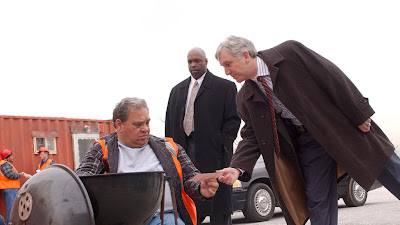The Wire – All
Prologue
Season 2, Episode 6
Directed By:
Steve Shill
Written By: David
Simon, from a story by Ed Burns and Simon
Read out “The Wire” Project here. Read about the previous episode here, or click here to see the total coverage. Assume spoilers for the episode
Why
does David Simon identify with D’Angelo Barksdale more than any other character? Of all the members The Wire's sprawling cast, it is often D'Angelo who becomes a microphone for Mr. Simon’s themes. Mr. Simon never
sold drugs or had a childhood that led him to prison. Sure, he spent a lot of
time around drug culture (see: The Corner),
but there is something truly unique about why he chooses D’Angelo; the man continues to hold onto the fact that he can escape. McNulty and the cops see that their efforts will have little effort. Stringer and the higher up drug family know they are tied to a certain life and cannot rise above it. And the port men see their livelihoods slowly fading out of existence. But D’Angelo
still believes in the possibility of escape.
But it is an impossibility, nonetheless. The highlight of “All Prologue” is a speech where
D’Angelo explains The Great Gatsby to
the prison book club. “There are no second acts in America,” someone quotes
Fitzgerald, which inspires D’Angelo to explain that as much as we want to
escape our past—our crimes, our passions, our family—we are inextricably linked
to them. And many characters slowly realize in this episode that they are, in
fact, tied to their past.




